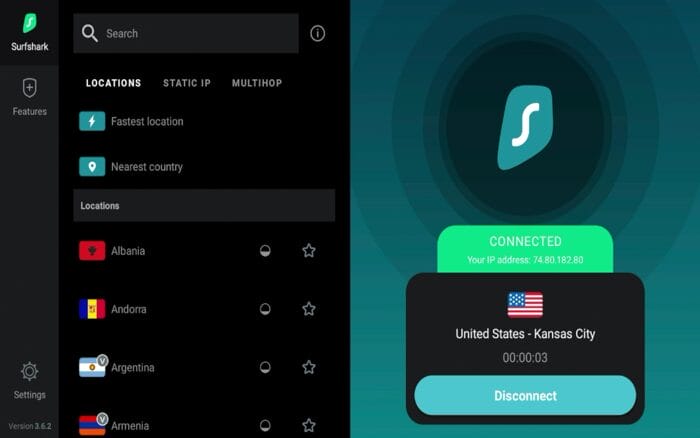- A Comprehensive IPTV Guide Tutorial for Beginners in 2025
- Understanding IPTV
- What is IPTV?
- Why Use IPTV?
- Choosing the Right Setup
- Choosing Your IPTV Provider
- Finding a Reputable Provider
- Setting Up Your IPTV System
- Protecting Your Privacy
- Getting an Anonymous Email
- Ordering Your IPTV Subscription
- Installing the IPTV App
- Adding Your Channels
- Troubleshooting Common IPTV Issues
- Dealing with Buffering
- Fixing Channel Freezing
- Keeping Your App Up-to-Date
- Legal Considerations
- Understanding Copyright
- Geo-restrictions
A Comprehensive IPTV Guide Tutorial for Beginners in 2025
This iptv guide tutorial provides a step-by-step approach to setting up and using IPTV (Internet Protocol Television). We've synthesized information from various sources to create a clear and concise guide, focusing on practical advice and avoiding unnecessary complexities. This guide will help you navigate the world of IPTV, from choosing a provider to troubleshooting common issues.
Understanding IPTV
What is IPTV?
IPTV is a digital television service that transmits television content over the internet instead of traditional cable or satellite infrastructure. This allows for a wider variety of channels, on-demand content, and often more flexible viewing options than traditional methods. It leverages your existing internet connection to stream live TV, movies, and shows to your device. Unlike traditional broadcast TV, IPTV often uses unicast and multicast transmission methods, delivering tailored content to individual viewers or groups simultaneously. This can lead to better bandwidth efficiency and potentially higher-quality streams, but it also relies on stable internet connections.
“Nexott is the most stable IPTV I’ve used – no buffering even during live sports!”

Credit: miro.medium.com
Why Use IPTV?
IPTV offers several advantages over traditional cable or satellite TV:
- Cost-effectiveness: Often, IPTV subscriptions are cheaper than cable TV packages.
- Flexibility: Watch live TV, on-demand movies, and shows from any device with an internet connection.
- Variety: Access a wider range of channels and content, including sports, movies, and TV shows. This often includes on-demand content, catch-up TV, and potentially pay-per-view (PPV) options.
Choosing the Right Setup
Choosing Your IPTV Provider
Finding a Reputable Provider
Selecting a reliable IPTV provider is crucial for a positive experience. Consider these factors:
- Content offerings: Does the provider offer the channels and content you want? Prioritize providers with a strong library of your desired content (e.g., sports, movies, TV shows).
- Subscription plans: Compare pricing and features to find the best value for your needs. Look for plans that offer flexibility, like month-to-month options if you're unsure about long-term commitment.
- Device compatibility: Confirm the provider's compatibility with your chosen streaming device (e.g., Android TV box, smart TV, computer). This will prevent issues with compatibility.
- Customer reviews and reputation: Research customer feedback to assess the provider's reliability and customer support.
Setting Up Your IPTV System
Protecting Your Privacy
Before subscribing to any IPTV service, prioritize your online privacy. Use a VPN (Virtual Private Network) to mask your IP address, protecting your identity from your internet service provider (ISP) and potentially other parties. A VPN also helps prevent throttling by your ISP. Consider using a secure VPN like Surfshark, as mentioned in other sources.

Credit: troypoint.com
Getting an Anonymous Email
Use a disposable email address for registering with the IPTV provider. This adds an extra layer of privacy by separating your personal email from your IPTV account. StartMail is one example of a service that provides disposable email addresses.

Credit: troypoint.com
Ordering Your IPTV Subscription
Follow the provider's instructions to order your subscription. Pay attention to any specific requirements, like providing a device ID or using a particular payment method (e.g., cryptocurrencies). Use your anonymous email address for registration.
Installing the IPTV App
Download and install the appropriate IPTV app on your chosen streaming device. This will vary based on your device (e.g., Android TV box, Roku, Smart TV, etc.). Follow the app's instructions for setting up your IPTV service. Some apps may require an M3U playlist URL, while others may use different formats.

Credit: alliptv.tv
Adding Your Channels
Use the instructions provided by your IPTV provider to add the channels to your app. This usually involves entering an M3U playlist URL or similar code. This is where you'll connect your chosen iptv guide tutorial with your actual IPTV subscription.
Troubleshooting Common IPTV Issues
Dealing with Buffering
Buffering issues are common with IPTV. Ensure your internet connection has sufficient bandwidth to support the quality of content you want to stream. If using Wi-Fi, try connecting with a wired connection. Limit the number of devices connected to your network while streaming. Consider using a VPN to mitigate throttling.
Fixing Channel Freezing
If channels freeze, it could indicate server overload. Try switching to a lower-resolution stream to reduce the load on the server. Contact your provider if the issue persists.
Keeping Your App Up-to-Date
Ensure your IPTV app is updated to the latest version to maintain compatibility and performance. Outdated apps can sometimes cause issues.
Legal Considerations
Understanding Copyright
Be mindful of copyright laws when using IPTV services. Only access content that is not protected by copyright or legally available in your region. Using unauthorized content can lead to legal consequences.
Geo-restrictions
Some IPTV content may be geo-restricted. A VPN can help you bypass these restrictions, but be aware of local laws regarding content access.
This iptv guide tutorial provides a foundational understanding of IPTV. Remember to prioritize your privacy and adhere to legal guidelines. By following these steps, you can enjoy a wider range of entertainment options at a potentially lower cost, but always be aware of the legal implications of using IPTV services.

